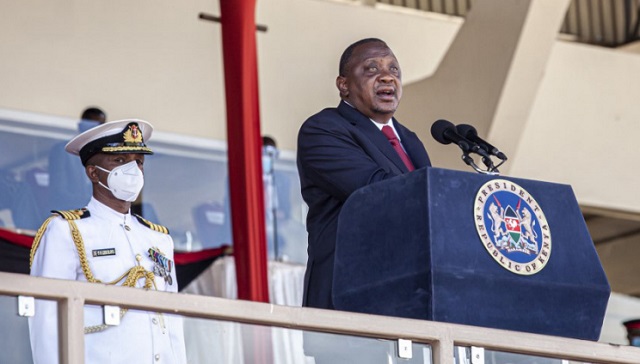
As Kenya becomes the latest African country to succumb to the economic fallout of the virus, can its economy rebound in 2021 as a deadly second wave sweeps the continent?
| TOM COLLINS | Kenya’s economy slumped into a recession for the first time in almost two decades after GDP contracted for a second straight quarter in September 2020.
Economic output shrank 1.1% in the third quarter, and 5.5% in the second quarter, according to a report released by the Kenya National Bureau of Statistics (KNBS) on Wednesday.
The contraction was driven by a severe decline in the hospitality and education sectors, and a slowdown in manufacturing, retail and services.
The recession in Kenya fits with the broader trend of Africa entering its first recession in 25 years, according to the World Bank. The downturn in economic activity is expected to cost the continent at least $115bn in output losses and to push 40m people into poverty, reversing at least five years of progress in that regard.
Kenya’s restaurant and accommodation sector shrank 83.2% in Q2 and 57.9% in Q3 while the education sector dipped 56% in Q2 and 42% in Q3.
Measures taken by the government to curb the spread of Covid-19, shortly after the first case was announced in March, negatively impacted the economy during the second quarter, though it began to recover as lockdowns were gradually eased.
Last recession in 2002
Kenya’s last recession – defined as two consecutive quarters of negative growth by the KNBS – was in 2002 during the transfer of power from former president Daniel arap Moi to Mwai Kibaki.
The economy last contracted in Q3 2008 due to a mix of the global financial crisis and the 2007-2008 post-election violence.
However, the economy is expected to “rebound strongly in 2021”, according to a statement by the Central Bank of Kenya (CBK).
The recovery will be supported by “education, manufacturing, resilient exports, agriculture” and the government’s economic recovery plan, the bank says.
Children returned to school at the beginning of January after a nine-month hiatus as Covid cases dropped significantly from a peak in August and a second wave in November.
Aly-Khan Satchu, CEO of Nairobi-based investment advisory firm Rich Management, says that agriculture has been a “silver bullet” for Kenya’s economy, saving it from an “asymmetric downside spiral”.
The agricultural sector grew by 1.3% more than in 2019, backed by increases in tea production and exports of fruit and sugar.
Satchu, however, believes that the estimated growth of 6.9% by the World Bank in 2021 is “seriously wide of the mark” due to a tourism sector that will not recover even with the vaccine.
Kenya’s debt to GDP ratio, which rose from 61.9% at the end of 2019 to 69.2% in August 2020, is also expected to put the brakes on economic recovery.
Rest of east African countries demonstrate resilience
Meanwhile, economies of other countries in the region – Uganda, Rwanda and Tanzania – have remained resilient amidst coronavirus pandemic.
Latest statistics from the finance ministry shows that Uganda’s economy grew by 2.9 % in FY 2019/20, which is lower than 6.8 % recorded in FY 2018/19.
It is also projected that in the FY 2020/21 economic growth will be in the range of 2% to 3% and is expected to improve further to between 4 % and 5 % in FY 2021/22.
Rwanda’s economy is projected to contract 0.2% this year but will recover next year to grow 5.7%, the International Monetary Fund. The east African nation’s economy grew 9.4% in the previous year.
****
Adapted from African Business Magazine with additional reporting by Isaac Khisa
The post Kenya slumps into first recession in two decades appeared first on The Independent Uganda:.
from The Independent Uganda: https://ift.tt/3pTEga0
0 Comments